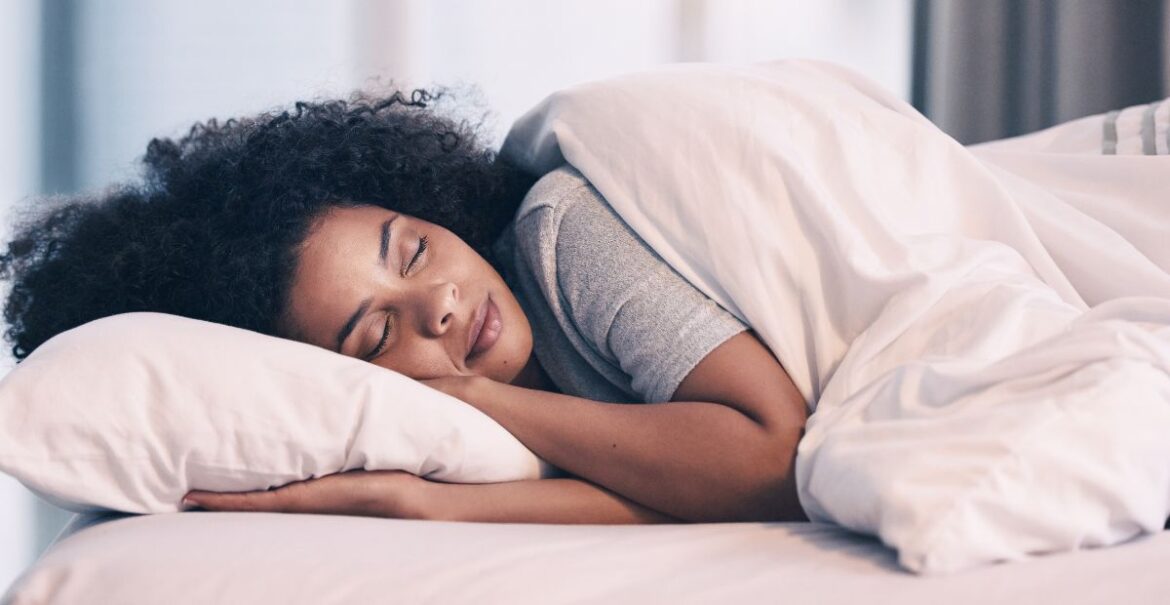Key Habits for Skin-Supportive Sleep
Several sleep hygiene practices directly benefit skin:
-
Regular Sleep Schedule: Going to bed and waking at the same times daily helps synchronise circadian rhythms, supporting optimal repair cycles.
-
Screen-Free Wind-Down: Limiting exposure to phones, tablets, and computers an hour before bed reduces blue light disruption, improving melatonin production and sleep quality.
-
Cool, Dark Bedroom: Lower temperatures and blackout curtains create an environment conducive to deep, restorative sleep.
-
Hydration and Nutrition: Drinking water earlier in the evening and avoiding heavy, salty meals before bed prevents dehydration and puffiness.
-
Evening Skincare Rituals: Gentle cleansing, hydration, and the use of serums or oils enriched with antioxidants and peptides enhance skin repair while signalling the body it’s time to wind down.
The Mind-Body-Skin Connection
Sleep hygiene isn’t only about physical factors; mental state plays a crucial role. Stress and anxiety release cortisol, which can compromise skin barrier function and trigger breakouts. Relaxation techniques — meditation, guided breathing, or journaling — integrated into a bedtime routine, reduce cortisol levels, allowing both mind and skin to recover overnight.
UK spas and wellness centres now often include pre-sleep workshops or treatments designed to improve sleep quality. Treatments like aromatherapy facials, gentle massages, and warm oil applications relax the nervous system, promoting deeper sleep and enhanced skin regeneration.
Products That Complement Sleep Hygiene
Beauty brands in 2025 are increasingly formulating products specifically to align with sleep cycles. Popular options include:
-
Night Serums: Rich in peptides and antioxidants to support collagen synthesis and combat oxidative stress.
-
Hydrating Overnight Masks: Provide sustained moisture and encourage skin barrier repair while clients sleep.
-
Aromatherapy-Infused Skincare: Lavender, chamomile, and sandalwood enhance relaxation and improve sleep onset.
-
Eye Treatments: Creams targeting puffiness and dark circles benefit from nighttime hydration and circulation support.
These products work in synergy with good sleep hygiene, maximising skin repair during the most critical hours of the night.
Lifestyle Adjustments Beyond the Bedroom
Beyond bedtime, daily habits influence sleep quality and skin health. Limiting caffeine and alcohol intake, exercising earlier in the day, and reducing stress through mindfulness practices contribute to deeper, more restorative sleep. In turn, these adjustments enhance hydration, reduce inflammation, and improve the skin’s resilience against environmental damage.
Technology’s Role in Sleep-Supportive Skincare
While screens can disrupt sleep, technology is also helping UK clients improve it. Apps and wearable devices monitor sleep quality, track circadian rhythms, and provide personalised insights. Smart lighting systems gradually dim and shift colour temperatures to mimic natural sunset patterns, helping the body prepare for sleep. Integrating these tools with evening skincare routines creates a modern approach to sleep hygiene that maximises skin benefits.
The Psychological Benefit
Improved sleep hygiene enhances confidence and mood, which indirectly affects skin appearance. Stress reduction through consistent sleep patterns leads to fewer tension lines, less redness, and a healthier complexion. Mindful evening rituals foster a sense of control and self-care, making clients feel more radiant from within.
Long-Term Advantages
The cumulative impact of good sleep hygiene is profound. UK clients report that consistent habits not only improve sleep quality but also lead to long-lasting skin benefits: increased elasticity, smoother texture, reduced redness, and a natural glow. Over months and years, the combination of restorative sleep and targeted skincare becomes a cornerstone of anti-ageing and wellness strategies.
Conclusion
Sleep hygiene and skin health are inseparable partners in modern wellness. While topical products remain important, the quality of rest dictates how effectively skin can repair, regenerate, and thrive. UK beauty experts now emphasise the importance of consistent routines, mindful pre-sleep rituals, and lifestyle adjustments to support both skin and mental wellbeing.
In 2025, understanding the hidden link between sleep and skin allows clients to achieve more than a radiant complexion — it provides holistic wellbeing, improved resilience, and the confidence that comes from nourishing the body from the inside out. By prioritising sleep hygiene, skincare becomes not just a routine but a comprehensive wellness strategy, proving that beauty truly begins with rest.

